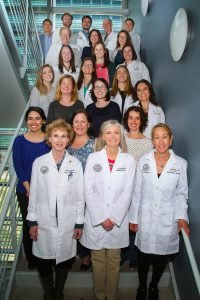This piece was written by Janet Raban. We are excited to share her story and look forward to sharing more stories here as well. Below, Ms. Raban shares her experience and some words of inspiration. Thank you, Ms. Raban, for sharing.
In November 2001, I experienced my first symptoms of Parkinson’s Disease (PD), a slight tremor of the ring finger and pinky of my right hand. My primary care physician referred me to a neurologist and the journey began. The neurologist insisted I had MS and put me through a battery of tests that included two brain MRIs, one cervical MRI, and a spinal tap, none of which exhibited any plaquing in the spinal fluid (a sure sign of MS), yet she persisted. So, I asked to be referred to the guru of all MS specialists in Denver, that being Dr. John Corboy at UCHealth. This was my first lesson in advocating for myself, which has become routine since that day. The rationale for self-advocacy is it keeps you in touch with your emotions, your physical health, and your sense of control over the circumstances.
After only five minutes with Dr. Corboy, he reassured me that I did NOT have MS and sent me to see his “colleague across the hall.” Dr. Maureen Leehey, a movement disorders specialist, has not only treated my Parkinsonism since then day I met her but has become a dear friend. At one point, she asked if I was interested in a drug trial for patients who were recently diagnosed and had not started on any PD drugs. That was my first foray into drug trials that have since spanned the course of my disease.
Critical to the management of my disease was my support system, namely my husband, Ed. He has been by my side every step of the way. He has attended a majority of appointments that I had over these last 20 years. We even traveled to Connecticut for one drug trial. He has been my rock, especially when I found myself in the depths of despair or just to listen to my rantings with a cool head and a loving heart.

Have there been moments of despair? Yes, of course, but they have been far outweighed by times of hope in the great advances in my overall health (thanks to the expert administration of appropriate medications at the right time by Dr. Leehey) and to research and surgery. After more than 20 years with PD, I decided to have Deep Brain Surgery (DBS). I was maxing out on my meds and DBS offered me the opportunity to reduce the amount of medication I was taking and a device that also enabled me to have some modicum of control over my disease. I have always told my daughter that the measure of your character is in how you deal with adversity. Meet it head-on!
You must advocate for yourself. You can’t let the disease control your life. You have to at least TRY to control IT. So, as a result, I decided on the surgery. A window of opportunity opened, and I climbed in. Your expectations may be higher than mine. Your fears may be greater than mine. Your lifestyle may be different than mine. But what we do have in common is an insidious disease, a disease that intimidates, instills fear, a disease that saps your energy and hope for a “normal” future. Be courageous, self-advocate, and ask lots of questions, that’s the only way you can get the answers you need to decide how your future will play out. You can control it, you may not overcome it, but you have a choice as to how you handle it. I made a choice to have DBS surgery and I don’t regret it. You have choices too. Be courageous, take the leap of faith, trust your doctors to help you make those decisions. You won’t regret it either.


